- Home
- Stephen Hunter
Havana Page 2
Havana Read online
Page 2
“Fungola!” cursed Frankie, tossing the empty gun. He looked and prayed for Lenny but Lenny had long since quit the field. Sirens arose and it seemed that several brave citizens were pointing at him.
“You killed a horse!” a lady spat.
Frankie did not think it the right time to offer explanations, and turned toward an alley and began to run like holy hell.
Chapter 2
In the early spring of 1953, a big noise from Winnetka dominated the diplomatic tennis circuit in Havana. That was what they called him, after the famous hit tune from the ’30s. It summed him up: big, powerful, American, unbeatable. And it didn’t matter that he actually came from Kenilworth, a whole swank town down the North Shore from Winnetka. He was close enough to Winnetka. His name was Roger St. John Evans, and to make him all the more glamorous, it was rumored he was a spy.
He was in demand that season. He played at least three or four times a week, on his own courts or at some other embassy out in leafy Vedado or, even more frequently, at the Havana Country Club, or even occasionally on the private courts of the big Miramar houses out La Quinta owned by Domino Sugar executives or United Fruit Company bigwigs. In all those venues, the embassies, the big northward-facing houses in Miramar and Buena Vista, the courts behind the Vedado embassies, out as far as La Playa and the Yacht Club, the country club, his beauty, power and smoothness made him many a wealthy young lady’s dreamboat, a sought-after dinner guest, a real catch.
So on a certain late spring day—the sky was so blue, the summer heat had yet not attacked the Pearl of the Antilles, a breeze floated across Havana, just enough to lift flags and palms and young girls’ hearts—Roger tossed the ball upward for service, felt his long body coil as pure instinct took over, and the strength traveled like a wave up and through his body and the complex computations of hand/eye circuitry functioned at a rate far more efficient than most men’s. As the ball was released he tightened, then unleashed and his arm ripped through an arc, bringing the racket loosely with it in the backhand grip for a bit of English. He caught the ball full swat at its apogee—the nearly musical pong! signifying solid contact was so satisfying!—hit through it at a slight cant, and nailed a bending screamer that seemed to spiral toward the chalked line on the other side of the net. It hit that target square, blasting up a sheet of white mist, and spun away, far beyond his poor opponent’s lunge.
Game, set, match.
His two opponents, a Bill and a Ted, executives for United Fruit, accepted the inevitable.
“That’s it, boys,” sang Roger, allowing himself a taste of raptor’s glee.
“Well done, old man,” said Bill, who though not an Ivy had picked up certain Eastern affectations from the many who dominated the island’s American business culture.
Roger’s doubles partner, his eager young assistant Walter, who played a spunky if uninspired game of tennis and always seemed a bit behind, gave a little leap and clapped a hand against the base of his racket face, in salute to his partner’s brilliance and victory.
“Way to go, Big Winnetka! Boola-boola!” he chanted, in a voice clotted with affection and admiration.
The players gathered at the net, to shake hands, exchange respects and towel off.
“A drink, I think,” said Ted. “Pedro, mojitos please. At the pool. And tell Manuelo not to spare the rum. I think we can afford it.” He winked at Roger. “I have an in at Bacardi.”
“Si, señor,” said Ted’s senior servant, who trotted off to fetch.
“Walter, help him, will you,” said Roger.
“Sure,” said Walter cheerily.
“No, no,” said Ted, “it seems compassionate, but you spoil them and there’s problems later. Let’s go to the pool.”
They walked through the garden to the shimmering blue reservoir behind the great house. The men sat at a table under an ancient pruned palm, close to flowers, hedges, tropical bouquets and recently turned earth, in the shade of a vast umbrella, and Pedro brought the drinks. They were expertly made, the rum soaked in dense sugar, the mint sprigs crushed to loosen that herb’s magic, the gassy water aboil with bubbles, all mixed to swirl and the ice cubes giving the whole an intense chill. The pleasing ritual of men drinking: the booze took the sting from the losers’ loss and spread the glow of the winners’ win. Cigars, Havana Perfectos in fact, came out, were lit and sucked and a warm fog settled upon the four.
Blah blah blah and more blah blah blah, all pleasant if pointless: a little embassy gossip, a little business climate analysis, a little on current politics and what a good job the new president Batista was doing, he was really on the team, and on and on—
But then it seemed a shadow passed over the sun. No, it was Pedro. He whispered something to Ted, who nodded.
“Well,” he said, “this is so pleasant I wish it would never end. But now it must. There’s someone you have to see. Will you follow me please? He’s just arrived.”
Roger shot Walter a look. What’s this? it seemed to say. Who are these boys to be playing so mysterioso? Being mysterioso: that was Roger and Walter’s profession. And the locution was so strange: someone you have to see, as if it were a professional situation, not a post-match social obligation.
But, of course, they both rose with their host and followed him into the big house with its gleaming floors and up marble stairs. United Fruit knew how to impress. Not even El Presidente, as Batista was mocked by the Americans behind his back, lived quite so grandly as United Fruit’s most important executive.
“That way. The library. I’d hurry. He’s expecting you.”
Roger led the way through French doors and into a vast room, lined with books that had never been opened, and furniture from somebody’s empire, and silk and damask and the usual gewgaws of conquest, a bronze telescope on a tripod, a Brown Bess hung on the wall, lancers pennants tripoded in the corner. Both men blinked, for the doors to the balcony were open and the light of day blazed in unrepentant and powerful.
“Well hello, boys. My, aren’t you a sight? Sweaty but unbowed, athletes of the moment.”
Roger recognized the voice, thought no, no, it can’t be, and squinted as from a dark corner a man came into the light. He was not remarkable in any way and wore a simple khaki suit and a white shirt and black tie. He wore black plastic-framed glasses, was quite bald, if a little tall and rangy. No charisma, no attraction, no drama. The face so regular as to instantly vanish from memory. He looked like a salesman or possibly a minor attorney. His name was known but to a few, though to those few it had acquired legendary status. Roger was one of the few. That name, however, was not spoken, and had never appeared in print. Instead he was called Plans, for he ran the Directorate of Plans, on the Agency’s clandestine side. He didn’t fight the Cold War, he was the Cold War. To his face he was called…well, nothing. It was awkward, but nothing could be done about it. Sir, uttered by the subjects of his attention, clumsily facilitated his face-to-face transactions.
This was a highly unlikely situation. Plans normally functioned out of the station, as the slang had it, in the embassy. He never just, er, showed up like this, in some private house miles from the embassy, unless something really interesting was about to happen.
“Sir, do you know my assistant, Walter Short?”
Walter bowed nervously; he could not have known himself who this fellow was, but as a quick study had intuited from pal and supervisor’s gravity that he was important.
“Hello, sir, I—”
“Yes, yes, Short. China, no? Some military stuff, advising Chiang. Is that right?”
“Yes, sir, I—”
“Well, Roger, and, uh, Short, sit down, we must have a chat.”
And so they sat.
“How are your parents, Roger? Is your father still prospering?”
“Sir, Dad’s fine. The heart attack slowed him down, but Mom says he’s back at work now. Nothing can stop that man.”
“Yes, I know. I crewed with him at Harvard. But I was never an at
hlete like him. I wonder if he remembers me. He was a fine athlete.”
“Yes, sir. Dad was. He still has a three handicap.”
“That’s remarkable. Now, anyway, Roger, I am here—”
“Roger, should I take notes?” whispered Walter.
“No, no, we don’t want any of this on paper,” said Plans.
“Yes, sir, I—”
“That’s all right. Now, Roger, I just looked through your OSS record. Very impressive. Then there’s your medal citation. Silver Star. Very impressive. You were part of a team that hunted down a German sniper in Switzerland. You killed him. I like the finality in that. No ambiguity to it at all. You blew the bastard out of his boots, you recovered some advanced technology that was very helpful. Short, did you realize you were working for a genuine war hero?”
“I knew—”
“So, Roger, you were, in a sense, a manhunter.”
Roger swallowed, ever so gently. It was all true, but just barely. He’d been a child. An officer named Leets did all the work. At the end, when they killed the German, Roger was aware that most of his burst of .45s had missed. He had just hosed the tommy gun away, running through thirty rounds in three seconds, the only bullets he fired in the entire Second World War.
“I suppose,” said Roger.
“Good. A taste for it? Like it dark and dangerous? Like the guns, the excitement? Like the thrill of the hunt, the satisfaction of the kill? That’s what we’re looking for.”
“It was necessary,” was all Roger could think to say.
“Like to run another operation like that, Roger?”
Well…here it was. Roger knew that if he said no, it would be a dark mark against him. Plans didn’t come this far, enter through the back door, and fly home tourist class to hear a rejection. But if Roger said yes, well, that had its problems too: one didn’t want to get caught up in something sticky and illegal that couldn’t be controlled. He smiled, and said, “Of course I—”
“Oh, I don’t want you doing anything violent. We are not gangsters, after all. We plan, we make sure things happen, we liaise, we coordinate, we administer. But you know how to put something like this together? You’ve done it. Part of it, of course, would be finding a man to do the actual work. Someone from outside our organization, but someone who could be trusted. Someone reliable. We both know there are elements in Cuba who would do such a thing for money or self-interest or a dozen other motives. But they are not reliable and we don’t want anything coming back to haunt us, do we? That’s why I rely on your discretion. You could find a man, no? You could supervise the operation. You could make it happen?”
“Yes, sir.”
“Good show! I knew you’d say that. Short, you aboard? You can play this sort of game under Roger’s supervision, can’t you? You won’t let us down?”
“Yes, sir,” said Walter, “and I—”
“Excellent,” said Plans. “Now, you are wondering, who is all this about? Well, it’s a young Cuban lawyer,” said Plans. He pushed a manila envelope over, and Short opened it to find the usual run of documents, plus a photo of a young man with an oval young face, a Spanish darkness, an intensity to eyes that could not yet have seen very much.
He turned it over, said the name aloud, feeling its newness on his tongue: “Castro.”
“That’s him. Very charismatic, an orator. He might be a problem.”
“A problem?” said Roger.
“A problem,” said Plans. “People are talking already. I’m getting serious inquiries from our own Caribbean Desk, from all sorts of people at State, from the Brits and the French, from the Mexicans and the Canadians. He was involved in anti-American demonstrations against John Foster in ’48 in Colombia. When the Ortodoxo party founder Chiba killed himself, this fellow astutely put himself at the center of the mourning process and got on the radio.”
“There are so many of them,” said Roger.
“But this one is different. He may be a problem.”
He paused.
“Everybody wants this island to stay just the way it is, now that we’ve reinstated Batista. We don’t want any applecarts upset, and we don’t want our Red friends taking an interest in this sort of fellow. He’s exactly their kind of man; they could play him like a Stradivarius. Too much money has been invested, and too much time has been spent. We can’t let this get out of control. If we’re not on top of it, it could be on top of us.”
“Sir—ah, I—”
“Yes, Roger, go on.”
“It’s just that, well, isn’t this a bit, you know, radical? I mean, there might be other methods: we could give him money, I suppose, or recruit him in some way. We could, you know, leverage him with photographs of some sort or other, we could acquire influence with one of his close associates so that we’d always have tabs on him and in some way could control him, why, there must be—”
“You know, that’s what some said in Langley. It’s worked in the past, it’ll work in the future. That’s the American way and everybody’s comfortable with it. You’re comfortable with it.”
“Yes, sir, I—”
“But maybe just this once, as a kind of test case, we ought to not do the American thing. We ought to make a statement. Nothing bold, nothing flamboyant, nothing cruel, nothing attention-getting. But the right folks would notice: this fellow, he was about to upset applecarts, and then suddenly he was dead. Who? Why, not the Americans, they don’t do that…do they? Maybe it’s time to add that do they? to the equation.”
“Yes, sir.”
“That’s why I want to go ahead on this thing. I’m approving a budget and it gets tucked into a National Security Working Group, and a senior case officer will run interference at Langley and I’ll supervise closely. We’ll code-name it Big Noise. I like that. I love thinking up the right code names. I don’t think an op can go unless it’s got the right damn name. Anyhow, I’m clearing the decks for you on other assignments. You don’t have to troll for sources at the country club any more. Though of course you should continue with the damned tennis. You can’t just walk away from it and huddle in the office.”
“Does this mean I can start winning faster? I’m very tired of throwing a couple of games to keep these people happy.”
“Yes, it should get you in the right mood. Kill them, crush them, stamp them out. In the meantime, I want to see you put together a scenario, find the personnel, develop it plausibly, set up a timetable, and we’ll run it by the Director and see if we can make it happen. I don’t need to tell you how top secret the operation is. That’s, of course, why I’m not operating out of the embassy station. You can’t keep anything secret in an embassy. Are we together on this? Roger, you’re with me now?”
“I’m just concerned about finding a fellow,” said Roger. “The whole thing would hinge on that. The wrong fellow, the wrong result. It has to be someone you can trust, who is heroic, capable, and patriotic. Where do you find such men?”
“Well, Roger,” said Plans, “the Agency has resources. We will—”
Walter Short interrupted.
“Excuse me,” he said, louder than Roger had ever heard him speak before. “I know where you can find such a man.”
They looked at him.
“There’s a man in Arkansas,” he said finally. “Strong, tough, smart, capable. A real hero. A genius with guns and in fights. A man who’s killed, who’s good at it, but who hasn’t been made crazy by it and doesn’t need to do it. And a man who knows how to get anything done. If you could get Earl working for you, you’d have something. I mean, something.”
Chapter 3
Sautéed en beurre, then served with a complex red, possibly a St. Emilion, a ’34 or a ’35, the cockroach would have tasted delicious. Why red? Because red goes with meat. A cockroach certainly isn’t fish, of that you may be sure.
But Zek 4715 did not have a St. Emilion, a ’34 or a ’35, or a pan or any butter, or anything much at all, except the cockroach.
It was not even
much of a cockroach. But cockroaches were hard to come by, and so this one, as runty and pitiful a specimen as it was, would nevertheless have to do, and the zek held it between his long and elegant fingers and considered it carefully.
Little bug, he thought, you and I, we are brothers. So it is entirely appropriate that you nourish me with your little pinch of protein. I salute you. I admire you.
“Just eat it, damn you,” said Zek 5891, known to be Latkowsky, the Polish saboteur and wrecker. “Don’t torture us with your exquisite manners.”
It seemed rude to consume a sibling so quickly, however. Zek 4715 and the bug: both were held squirming against their will in the grasp of a larger organism, and would live or die according to the dictates, no, the whimsies, of that organism.
So be it.
Outside, a wind howled. This was not remarkable, as outside a wind always howled. It was Siberia, after all, where the wind was supposed to howl. It was Gulag No. 432, some twenty miles south of the arctic circle, not far—say 150 kilometers—from the big town of Verbansk, with its cosmopolitan population of thirty-five, and a railhead.
“Gentlemen,” said 4715, raising the bug, “to you, the living, I dedicate this kindred soul.”
The living included Latkowsky; Zek 0567, one Rubel, an oppositionist; Zek 9835, Menshov, the famous careerist who had murdered hundreds for Beria only to be sent just as far north as anyone else; Zek 6854, Tulov, the spy for the Zionists; Zek 4511, Barabia, the spy for the French and Americans; Zek 2378, Krakov, the deviationist and wrecker; and…well, on and on, a barracks full of former intelligence officers, diplomats and soldiers who had in one way or another disappointed the regime or, more likely, its boss, and were turned magically into zeks, sentenced to die out here amid howling winds, nourished on beet soup and the odd potato or bug.

 Point of Impact
Point of Impact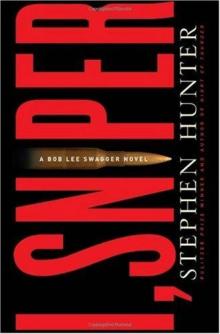 I, Sniper
I, Sniper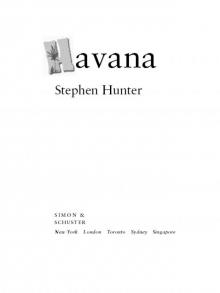 Havana
Havana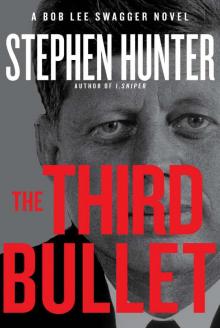 The Third Bullet
The Third Bullet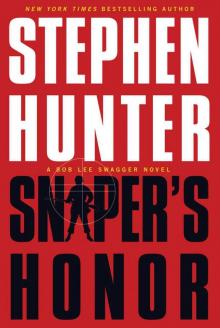 Sniper's Honor: A Bob Lee Swagger Novel
Sniper's Honor: A Bob Lee Swagger Novel Dirty White Boys
Dirty White Boys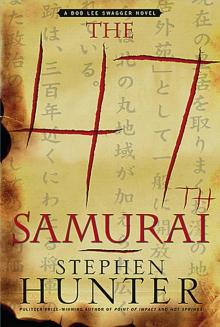 The 47th Samurai
The 47th Samurai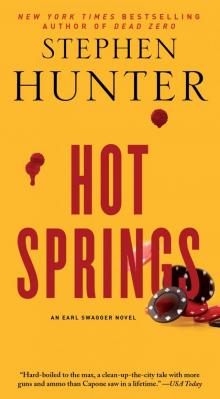 Hot Springs
Hot Springs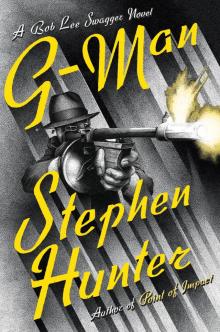 G-Man
G-Man Black Light
Black Light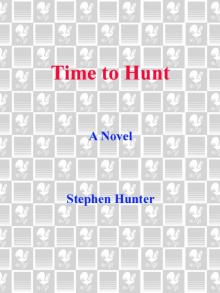 Time to Hunt
Time to Hunt The Day Before Midnight
The Day Before Midnight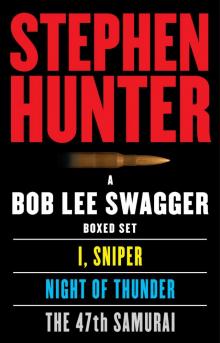 A Bob Lee Swagger Boxed Set
A Bob Lee Swagger Boxed Set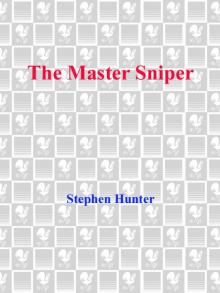 The Master Sniper
The Master Sniper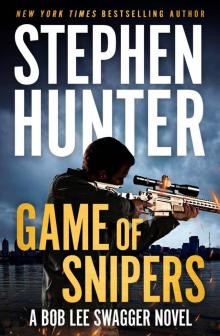 Game of Snipers
Game of Snipers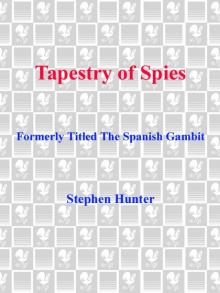 Tapestry of Spies
Tapestry of Spies Citadel
Citadel The Second Saladin
The Second Saladin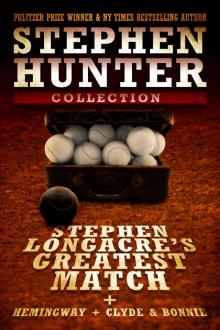 Stephen Longacre's Greatest Match
Stephen Longacre's Greatest Match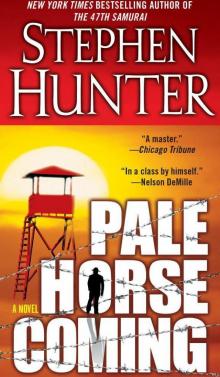 Pale Horse Coming
Pale Horse Coming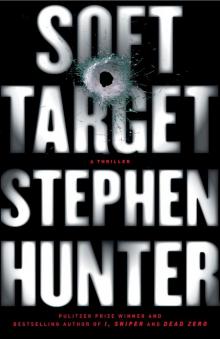 Soft Target
Soft Target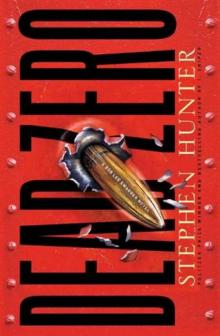 Dead Zero
Dead Zero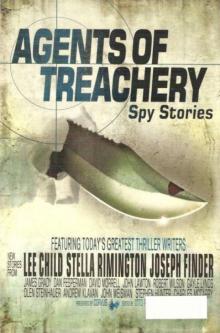 Casey at the Bat
Casey at the Bat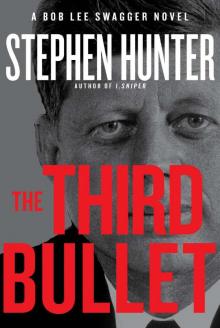 The Third Bullet bls-8
The Third Bullet bls-8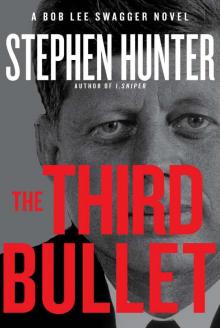 The Third Bullet: A Bob Lee Swagger Novel
The Third Bullet: A Bob Lee Swagger Novel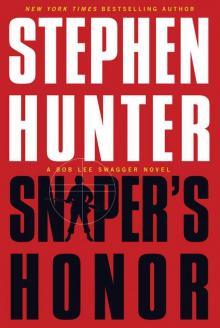 Sniper's Honor
Sniper's Honor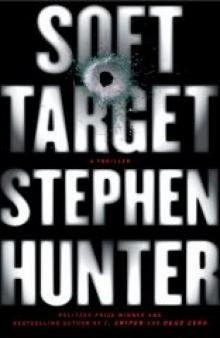 Soft target rc-1
Soft target rc-1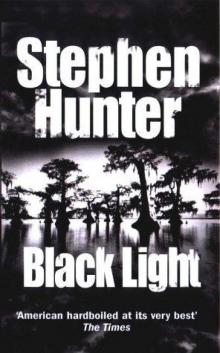 Black Light bls-2
Black Light bls-2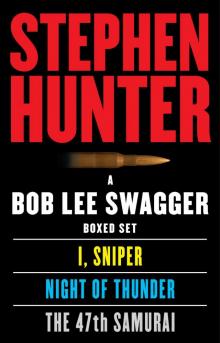 A Bob Lee Swagger eBook Boxed Set: I, Sniper, Night of Thunder, 47th Samurai
A Bob Lee Swagger eBook Boxed Set: I, Sniper, Night of Thunder, 47th Samurai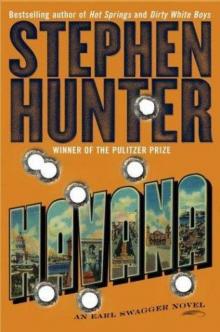 Havana es-3
Havana es-3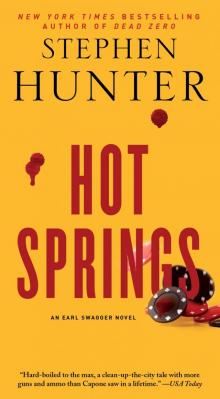 Hot Springs (Earl Swagger)
Hot Springs (Earl Swagger)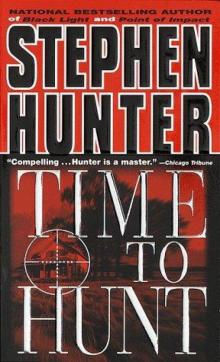 Time to Hunt bls-1
Time to Hunt bls-1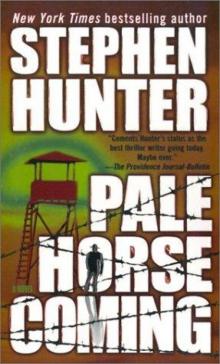 Pale Horse Coming es-2
Pale Horse Coming es-2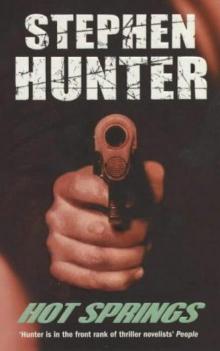 Hot Springs es-1
Hot Springs es-1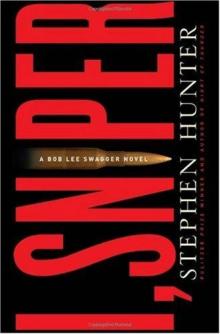 I, Sniper: A Bob Lee Swagger Novel
I, Sniper: A Bob Lee Swagger Novel